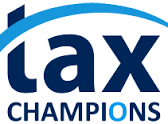The California Resident Income Tax Return form is commonly referred to as “IRS Form 540”. While this name isn’t accurate, it’s certainly easy to understand the confusion.
The Internal Revenue Service (IRS) governs the federal tax laws that Congress puts into place. “The IRS performs three main functions,” says the Tax Policy Center, “tax return processing, taxpayer service, and enforcement.”
The IRS’s counterpart in the state of California is the Franchise Tax Board (FTB). It performs the same functions as the IRS for California state taxes. Like the IRS, the FTB requires an annual report of income and tax.
Residents file their California Resident Income Tax Return on Form 540. Generally, people refer to the California Resident Income Tax Return as IRS Form 540. However, that’s not technically accurate.
Don’t worry. If you accidentally call Form 540 by the wrong name, a tax professional will likely know what you’re referring to.
Regardless of what we call it, be sure to file and pay on time if California tax law requires you to. “Generally,” says the FTB, “you must file an income tax return if you’re a:
- Resident
- Part-year resident, or
- Non-resident
And
- Are required to file a federal return
- Receive income from a source in California
- Have income above a certain amount.”
On this page, we examine Form 540 in-depth. Keep reading to learn about the information you need to complete it, common mistakes to avoid, and more.
Information Required to Complete IRS Form 540
To complete Form 540, you will need to provide information about your income, deductions, and credits. This includes information about your wages, salaries, and tips; self-employment income; and any other income you received during the tax year.
You will also need to provide information about any deductions or credits you are claiming, such as the standard deduction or the dependent care credit. Additionally, you will need to include any forms or schedules that are required to be attached to your return, such as Schedule CA (540) or Schedule CA (540NR).
It’s generally easiest to complete your IRS Form 1040. Then you can transfer much of the information and calculations over to Form 540.
Common Mistakes to Avoid
Earnest mistakes happen sometimes. The IRS nor the FTB penalizes taxpayers for them. However, “such errors can delay the process of your return and affect the amount of your refund,” says The Balance.
“The two most common taxpayer errors, for all filing methods, are wage withholding and estimate payment discrepancies,” says the FTB. Together, these two errors account for 39 percent of all taxpayer errors identified during the processing of tax returns.”
Let’s look at some other common mistakes that taxpayers make when filing their Form 540 according to the FTB.
- Claiming the wrong amounts of
- Standard deduction or itemized deductions
- Real estate withholding
- State disability insurance
- Exemption credits
- The amount of refund or payments you made on an original return does not match the FTB’s records
To decrease the likelihood of the FTB finding a mistake, it recommends e-filing your forms. Additionally, the expertise of a tax professional goes a long way in avoiding mistakes. When choosing a tax professional, ask about their ability to e-file on your behalf.
Deadlines for Filing California Resident Income Tax Return
The deadline for filing Form 540 is April 15th of each year, or the next business day if the 15th falls on a weekend or holiday. However, if you are unable to file by the deadline, you can request an extension of time to file by completing Form FTB 3519, Payment for Automatic Extension for Individuals.
This form must be filed by the original deadline of the return, and it will give you an additional six months to file your return.
(IRS) Form 540: Key Points
Form 540, also known as the California Resident Income Tax Return or IRS Form 540, is a California state tax form. Residents of California use it to report their income and pay state taxes. Its federal counterpart is IRS Form 1040.
The information that taxpayers report on Form 540 calculates the individual’s state tax liability. As a result, it determines if they owe any additional taxes or are eligible for a refund.
The form must be completed by all California residents who have earned income in the state during the tax year. The deadline for filing is April 15th of each year, or the next business day if the 15th falls on a weekend or holiday.
Getting Help with IRS Form 540
California doesn’t comply with all federal tax laws. There are other complex matters to take into consideration, as well. If you have questions about Form 540 or you would like an expert to complete it for you, consider contacting a tax professional.
Choosing a tax professional can be a smart move for individuals and businesses.
Expertise: Tax professionals have a deep understanding of tax laws and regulations They are adept at negotiating with the IRS.
Note: Not all tax professionals have the credentials to work in every state. The staff at Advanced Tax Team can work in California with the FTB.
Timesaving: Preparing taxes can be time-consuming, especially for individuals and businesses with complex financial situations. A tax professional can handle the process for you, saving you valuable time.
Avoid penalties: Tax laws are constantly changing. Failing to comply with them can result in hefty penalties. A tax professional can help you stay compliant and avoid costly penalties.
Maximizing refunds: A tax professional can help you maximize your refund by finding deductions and credits you may not have been aware of.
Peace of mind: Knowing that your taxes are in good hands can give you peace of mind and allow you to focus on other important matters.
Contact Advanced Tax Team at 877.959.0975. We’re an accredited business with the Better Business Bureau. Furthermore, we have an A rating and no complaints.
We offer a free consultation to discuss IRS Form 540 and your specific circumstances to determine your options. We’ll answer your questions and offer guidance on your best path forward. No high-pressure sales. No strings attached.
Call us today and sleep better tonight.
Sources
- Board, Franchise Tax. “2021 Instructions for Form 540 Personal Income Tax Bookletrevised: 07/2022.” 2021 Personal Income Tax Booklet | California Forms & Instructions 540 | FTB.ca.gov, https://www.ftb.ca.gov/forms/2021/2021-540-booklet.html.
- Board, Franchise Tax. “Do You Need to File?” Do You Need to File? | FTB.ca.gov, https://www.ftb.ca.gov/file/personal/do-you-need-to-file.html.
- Board, Franchise Tax. “Identify Areas of Noncompliance Taxpayers’ Bill of Rights Annual Report to the Legislature.” Identify Areas of Noncompliance | Taxpayer Bill of Rights | FTB.ca.gov, https://www.ftb.ca.gov/about-ftb/meetings/board-meetings/2019/taxpayer-bill-of-rights/identify-areas-of-noncompliance.html.
- Tonya Moreno, CPA. “Avoid These Common Mistakes on Your California Tax Return.” The Balance, The Balance, 6 Jan. 2023, https://www.thebalancemoney.com/california-top-personal-income-tax-mistakes-3193242.
- “What Does the IRS Do and How Can It Be Improved?” Tax Policy Center, https://www.taxpolicycenter.org/briefing-book/what-does-irs-do-and-how-can-it-be-improved.












